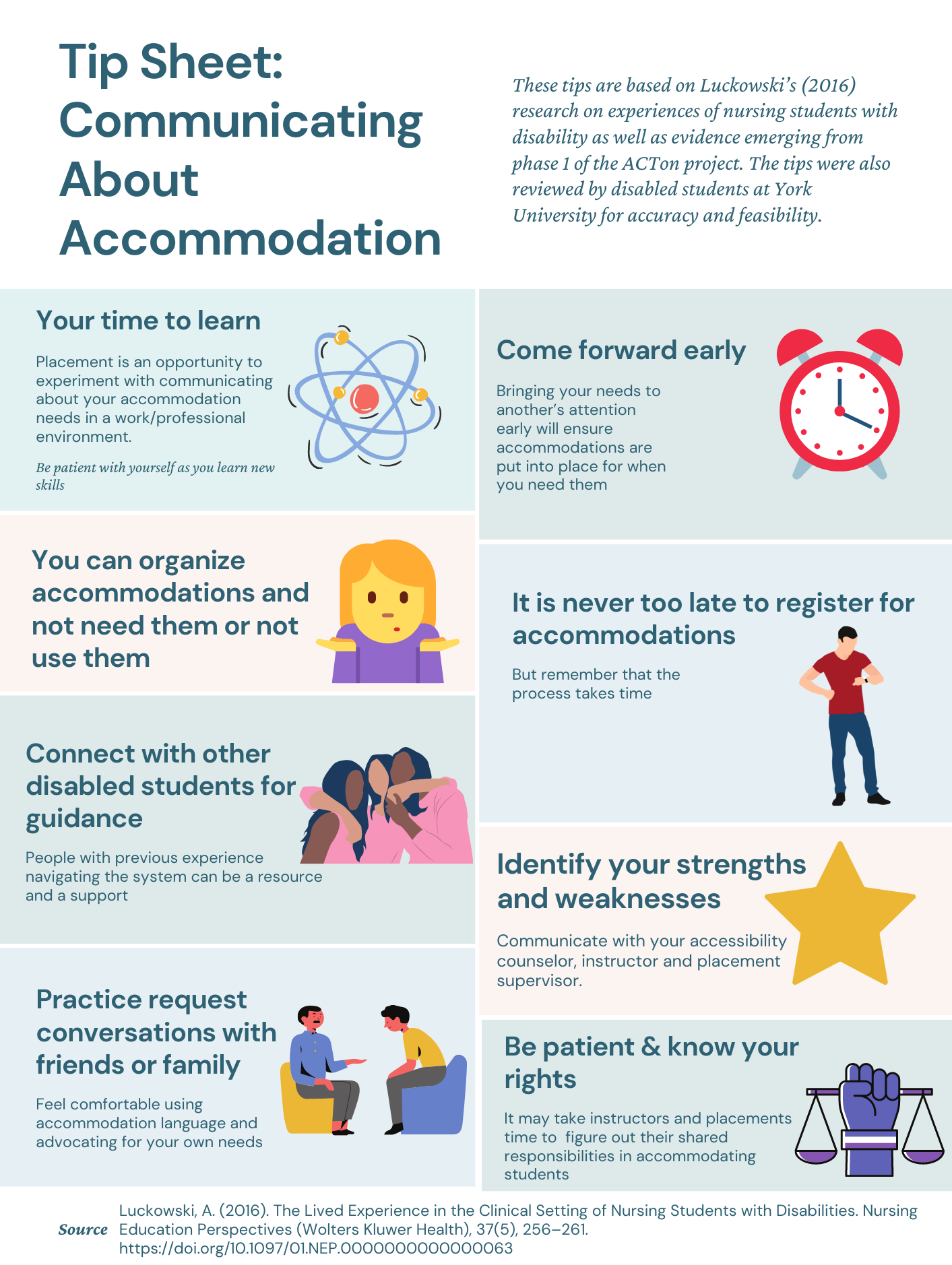2.3 Communicating About Accommodations: Student Tip Sheet
Reading time: approximately 2 minutes.
Here are some tips to consider before beginning your placement:
Student Tip Sheet Communicating About Accommodation (PDF)

These tips are based on Luckowski’s (2016) research on experiences of nursing students with disability as well as evidence emerging from phase 1 of the ACTon project. The tips were also reviewed by disabled students at York University for accuracy and feasibility.
This concludes the Student TidBit.
If you have not done so already, please take a moment to respond to an anonymous survey to tell us about your experience with the TidBit. The survey will take approximately 15 – 20 minutes to complete.
To access the full Choose Your Own Adventure Student Stories video check out the Student PowerHour.
Source
Luckowski, A. (2016). The Lived Experience in the Clinical Setting of Nursing Students with Disabilities. Nursing Education Perspectives (Wolters Kluwer Health), 37(5), 256–261. https://doi.org/10.1097/01.NEP.0000000000000063

